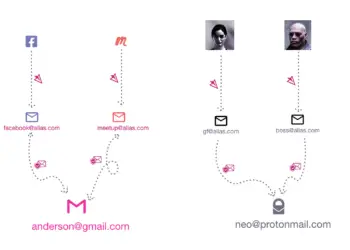Chapter 1: The Unexpected Call
Grandpa Joe loved using his computer to stay in touch with family and read the news. One sunny afternoon, while he was browsing the internet, the phone rang. On the other end was a polite man claiming to be from a well-known tech company. “Mr. Joe, we’ve detected a serious problem with your computer. It’s infected with a dangerous virus that could steal all your information.”
Joe, concerned about his data, listened intently. The caller, who introduced himself as “Mike from Tech Support,” sounded professional and trustworthy. He assured Joe that he could fix the problem but needed remote access to his computer. Eager to protect his information, Joe agreed and followed Mike’s instructions.
Chapter 2: The Fake Diagnostic
Mike guided Joe through the process of granting remote access. Once connected, Mike ran a series of fake diagnostics, filling Joe’s screen with alarming error messages and warnings. “Oh my, Mr. Joe, your system is heavily compromised. But don’t worry, I can fix it for you. There will be a small fee of $300.”
The amount took Joe aback, but he agreed to pay, fearing the loss of his data. Mike directed him to purchase gift cards from a local store and provide the card numbers over the phone. After making the payment, Mike assured Joe that the problem was fixed and disconnected the call.
Chapter 3: The Realization
Later that evening, Joe’s grandson, Alex, came over for dinner. Joe mentioned the call to Alex, who immediately recognized it as a scam. “Grandpa, legitimate tech companies never call you out of the blue and ask for remote access or payment in gift cards. I think you’ve been scammed.”
Alarmed, Joe explained everything that happened. Alex quickly took action.
Chapter 4: Damage Control
- Contacting the Bank: Alex helped Joe contact his bank to report the fraudulent transaction and see if they could reverse the charges.
- Reporting to the Gift Card Company: They called the company that issued the gift cards to report the scam and attempt to get a refund.
- Updating Security: Alex updated Joe’s computer security software and ran a full scan to remove any malicious software that might have been installed.
- Changing Passwords: They changed the passwords on all of Joe’s online accounts, ensuring each was strong and unique.
- Reporting the Scam: Finally, Alex reported the scam to the Federal Trade Commission (FTC) at ReportFraud.ftc.gov.
Chapter 5: Learning and Sharing
Joe felt embarrassed and upset but was determined to turn his experience into a learning opportunity for others. With Alex’s help, he wrote an email to his friends and family detailing what had happened and included tips to avoid tech support scams:
- Unexpected Calls: Legitimate tech companies will not call you to report a problem with your computer. Hang up if you receive such a call.
- Pop-up Warnings: If you see a warning on your computer, do not call the number provided. Accurate security warnings will never ask you to call a number.
- Online Searches: Be cautious when searching for tech support online. Go directly to a company you know and trust for help.
- Payment Requests: Never pay for tech support services with gift cards, wire transfers, or cryptocurrency. Legitimate companies do not ask for these forms of payment.
Joe shared the story widely, hoping to prevent others from falling into the same trap. He even gave a talk at his local community center, warning fellow seniors about the dangers of tech support scams.
Epilogue: Staying Vigilant
Joe’s encounter with the scammer was a harsh lesson, but it made him and those around him more vigilant. By sharing his story and spreading awareness, Joe turned a negative experience into a positive force for community education. Remembering Alex’s advice, Joe knew always to be cautious with unsolicited calls and messages and rely on trusted sources for tech support.
Joe’s story teaches us that staying informed and skeptical can protect us from falling victim to scams. If something feels off, trust your instincts and seek help from someone you trust. And consistently report scams to the FTC, helping to stop scammers and protect others.
We at SecureCyberNetwork are dedicated to providing you with the latest updates, tips, and expert advice to keep you safe in the digital world.
Your commitment to staying informed is about your safety, the safety of your loved ones, and the safety of our community.
Your involvement is powerful.








